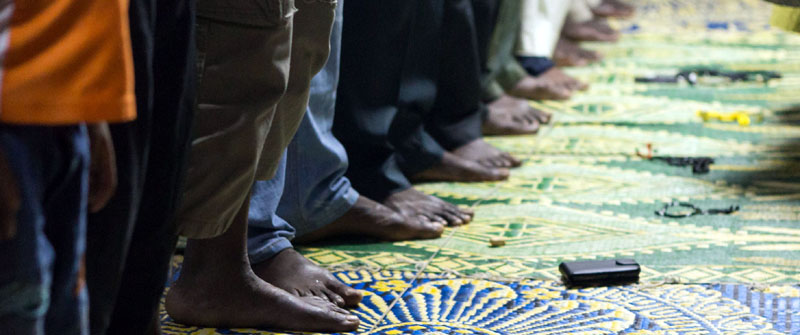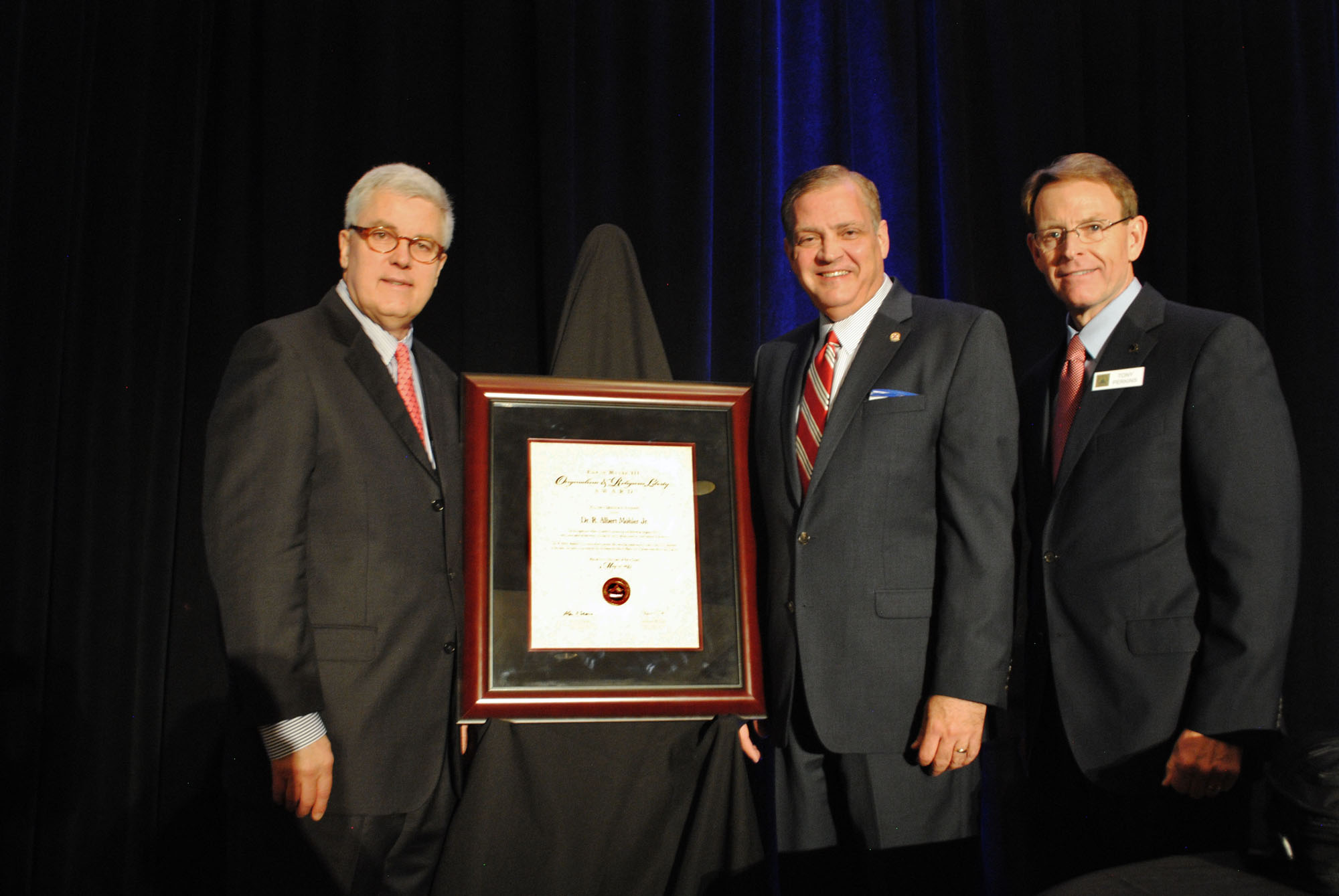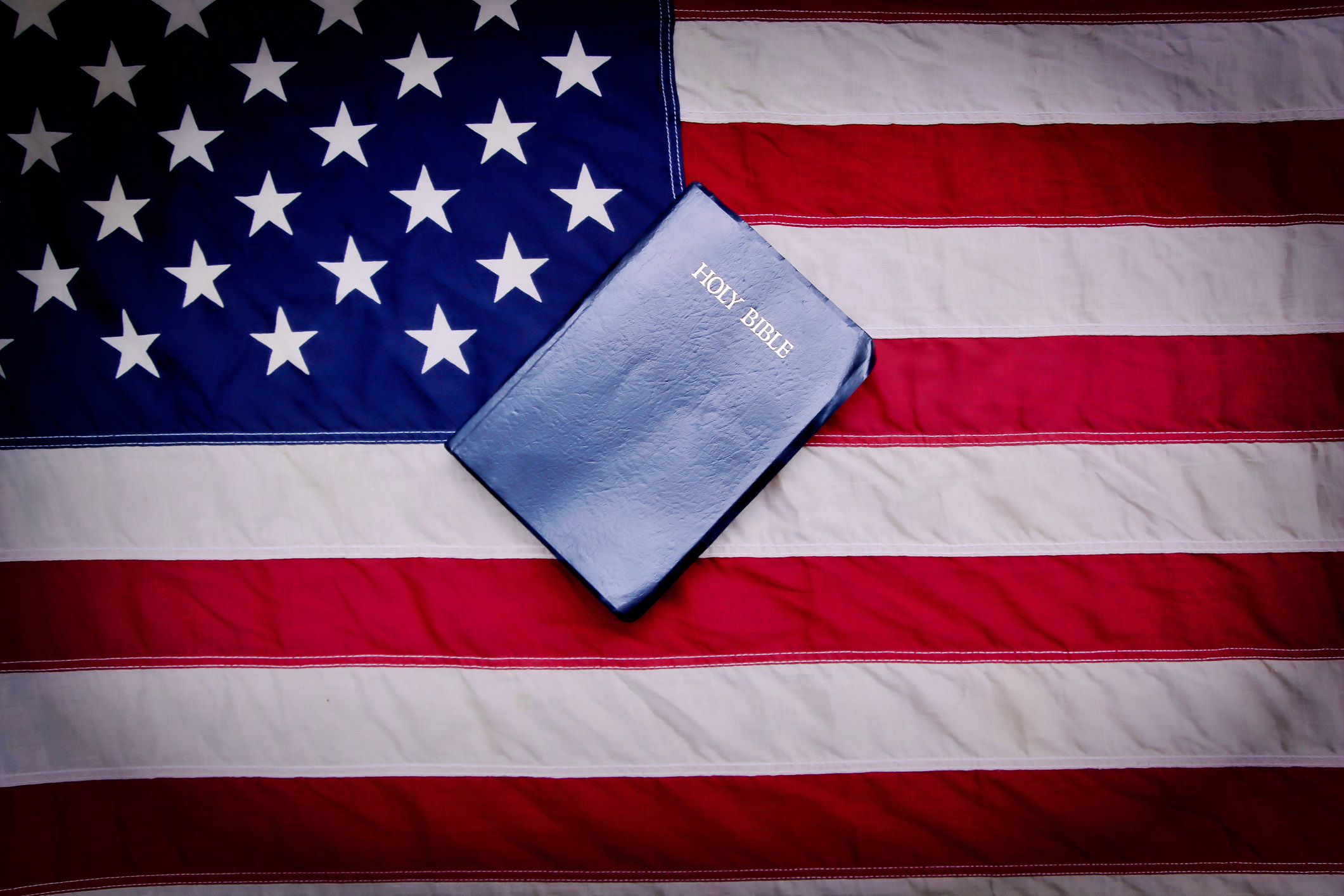 [1]
[1]Today’s From the Seminaries includes items from:
Midwestern Baptist Theological Seminary
Southern Baptist Theological Seminary
Southwestern Baptist Theological Seminary
Midwestern launches ‘Preaching & Preachers’ podcast
By T. Patrick Hudson
KANSAS CITY, Mo. (BP) — Midwestern Baptist Theological Seminary has announced the addition of a “Preaching & Preachers” in which MBTS President Jason K. Allen will interview guests on topics and issues from the sphere of preaching and beyond.
The first in the series, posted at JasonKAllen.com on April 18, is an interaction between Allen, Timothy George and Christian George titled, “Great Preachers in Church History.”
Also among the new podcast’s guests will be leaders in the field of preaching and pastoral ministry such as R. Albert Mohler Jr. on “Convictional Preaching”; Tim Challies on “The Preacher and Personal Productivity”; Paige Patterson on “Why Inerrancy Matters”; and D.A. Carson on “Avoiding Exegetical Fallacies.”
Allen said he intends for the podcast to reach a wide constituency with insightful, edifying content within the vital calling of church pastors, teachers and ministry leaders.
“My hope for Preaching and Preachers is to serve the church by discussing a wide range of topics that are directly related to the discipline of preaching and to those who proclaim God’s Word,” Allen said. “We’ll also, at times, reach beyond the subject of the podcast and interrelate on topics more distantly connected. Ultimately, we pray that God will be honored through these conversations.”
Allen acknowledged deriving the show’s title from a preaching legend’s book.
“I borrowed the podcast’s title from the immortal Martyn Lloyd Jones, who wrote the book, ‘Preaching and Preachers,’ because it has shaped several generations of preachers,” Allen noted. “Through the insight and wisdom obtained from the great pastoral and ministry minds of today, we pray that future generations of pastors will be encouraged to fulfill their ministry calling as well.”
Allen, who became the fifth president of Midwestern Seminary in October 2012, formerly pastored churches in Alabama and Kentucky, served on the administrative staff at Southern Baptist Theological Seminary in Louisville, Ky., and taught courses in personal spiritual disciplines, pastoral ministry and preaching.
Offer an ‘apologetic of love,’ speakers say at SBTS conf.
By Robert Chapman
LOUISVILLE, Ky. (BP) — In an increasingly secularized culture, Christians must articulate their worldview in defending the truth, evangelical leaders said at Southern Baptist Theological Seminary’s inaugural Driven By Truth conference.
“[From] this generation forward, no Christian will have a non-apologetic moment,” Southern’s president, R. Albert Mohler Jr., told the conference’s 200 attendees.
Mohler said faithful Christians must not take for granted the notion of truth. Every worldview, he said in preaching from John 18:33-38, must answer four questions: Why is there something instead of nothing? What has gone wrong? Is there any hope or a remedy for the wrong? How does the story end?
“Christians seeking to be faithful cannot avoid understanding that we are going to have to deal with, in every single moment, the perpetual responsibility of being clear about what Christianity is, and there is no way to do that without being clear about what truth is,” Mohler said.
In outlining 16 characteristics of truth, Mohler noted, “The most important apologetic that we can offer the world is an apologetic of love. That means that if we are really sharing the truth, we are doing so out of a love for the human being to whom we are speaking.
“If our apologetic is rooted in anything other than love, it will destroy our credibility, because no one is shouted, shamed, humiliated, embarrassed into the Kingdom of Christ,” he said.
Mohler was joined at the March 18-19 conference by Russell Moore, president of the SBC’s Ethics & Religious Liberty Commission; Dan DeWitt, dean of Boyce College, the undergraduate school of Southern Seminary; and Greg Thornbury, president of The King’s College in New York City.
Moore, formerly Southern’s academic vice president and dean of the school of theology, explained how a proper worldview is rooted in a Christian ethic. Speaking on Matthew 25:31-46, Moore said Christians may often find themselves in situations when what is right is not easy to discern. During these times, he said, Christians must strive to live ethically even if it does not make sense in the eyes of the world, like loving those who are ignored and overlooked by society.
“The faith that attaches to Christ is not looking at itself, but it is looking at Christ. Then Christians recognize Jesus in the most vulnerable around them,” Moore said. “Sometimes we lack confidence and are afraid, but we are …- being driven by truth.”
DeWitt preached from Colossians 2:1-10, showing how to answer plausible arguments against the Gospel. People who have non-Christian worldviews are not stupid, he said, but are enslaved and blinded by Satan.
“The best remedy for radical secularism is not reading a lot of books, but a better understanding of the Gospel. At the end of the day, the Gospel is the only thing that can defeat secularism or radical Islam,” said DeWitt, author of a new apologetics-themed book, “Christ or Chaos.” “There are a lot of plausible arguments and indeed there is much deceptive philosophy, but the Gospel will not bow to a single one of them and it will not be intimidated.”
Thornbury warned conference attendees not to miss opportunities for Gospel witness when engaging the culture. Describing the friendship of Lutheran pastor Oskar Pfister and psychoanalyst Sigmund Freud, Thornbury said Pfister refuted Freud’s beliefs but never called him to repentance and faith.
“There is a whole generation who traded apologetics for cultural engagement. However, our problem is not engaging culture, but figuring out how to disentangle ourselves from it,” Thornbury said. “We cannot engage the culture without getting to the Gospel. If you miss getting to ‘Repent for the Kingdom of God is now,’ you may have run the risk yourself of having the form of godliness but denying the power thereof.”
State senator: Abortion & religious liberty battles similar
By Alex Sibley
FORT WORTH, Texas (BP) — Texas state Sen. Konni Burton acknowledges that fighting for religious liberty is an uphill battle in today’s culture, but she sees hope.
Addressing students at Southwestern Baptist Theological Seminary, Burton recalled the Supreme Court’s precedent-setting Roe v. Wade decision, pointing out that many thought it would end the discussion on abortion.
“But actually, it led to more and more discussion,” Burton said. “In the last few years we’ve made more progress, and the next generation is more pro-life than the last generation.”
Burton said pro-life legislators had to deal with the issue of abortion in incremental ways, passing bills targeting specific aspects of the practice, such as the relatively recent bill in Texas that closed numerous abortion clinics across the state. She concluded that, just as Roe v. Wade failed to silence the discussion on abortion, so recent court decisions will fail to end the protection of religious liberty.
The politics of religious liberty was the focus of a question-and-answer session in Southwestern’s “Grindstone” series April 4. Joining Burton on the panel was Barrett Duke, vice president for public policy and research for the Ethics & Religious Liberty Commission. Assistant professor of ethics Evan Lenow moderated the discussion.
Duke noted that much of the conversation on religious liberty pertains not simply to one’s freedom of belief but also the larger issue of freedom of practice.
“There are many people who want to distinguish between religious freedom and freedom of worship,” Duke said. “They want to say, ‘You’re free to worship within the walls of your church building or your synagogue or your mosque, but once you leave the walls of that worship space, you’re under a different set of requirements and duties, and your religious freedom isn’t as sacrosanct as it is within the walls of your church building.'”
Driven by this mentality, efforts abound to restrict how people live out their religious beliefs, Duke said.
“Our position, and the position of many people around the states, is that it isn’t religious freedom if you can’t follow the dictates of your conscience in the way that you live and the way that you behave,” he noted.
Examining various ways that states are handling issues pertaining to religious liberty, Duke noted that a number of municipalities have passed local ordinances preventing employers from making hiring decisions based on a person’s sexual orientation or gender identity. Such ordinances are referred to as “SOGI” laws. These laws, Duke explained, essentially prevent faith-based businesses and people of faith from living out their religious beliefs.
In response, however, some states are attempting to pass laws that invalidate SOGI laws as discriminatory against people of faith, “which, in reality, they are,” Duke said. North Carolina, for example, passed a law saying that no local municipality can have a SOGI law that differs from state law. Tennessee passed a similar law several years ago.
Regarding such legislation in Texas, Burton said that while the state legislature is currently between sessions (they meet during odd-numbered years), lawmakers nevertheless are hard at work preparing bills for the next session. In fact, the State Affairs Committee received a charge from Lt. Gov. Dan Patrick to spend this interim period examining “measures to affirm First Amendment religious liberty protections in Texas” so they can then make recommendations “to ensure that the government does not force individuals, organizations or businesses to violate their sincerely held religious beliefs.”
This interim period includes a vetting process in which people can voice their concerns regarding specific pieces of legislation, information about which is available online. Burton encouraged students to be involved in the process so their voices can be heard.
Addressing the notion that contacting state representatives is difficult, Lenow noted that in order to invite Burton to Southwestern, he simply emailed her through her website and received a response later that same day.
Burton counseled, “Make sure that you engage at every level and get good, pro-Constitution people in every level, and we will continue to fight. The good news is we are doing what it takes, and we’re not going to quit.”





